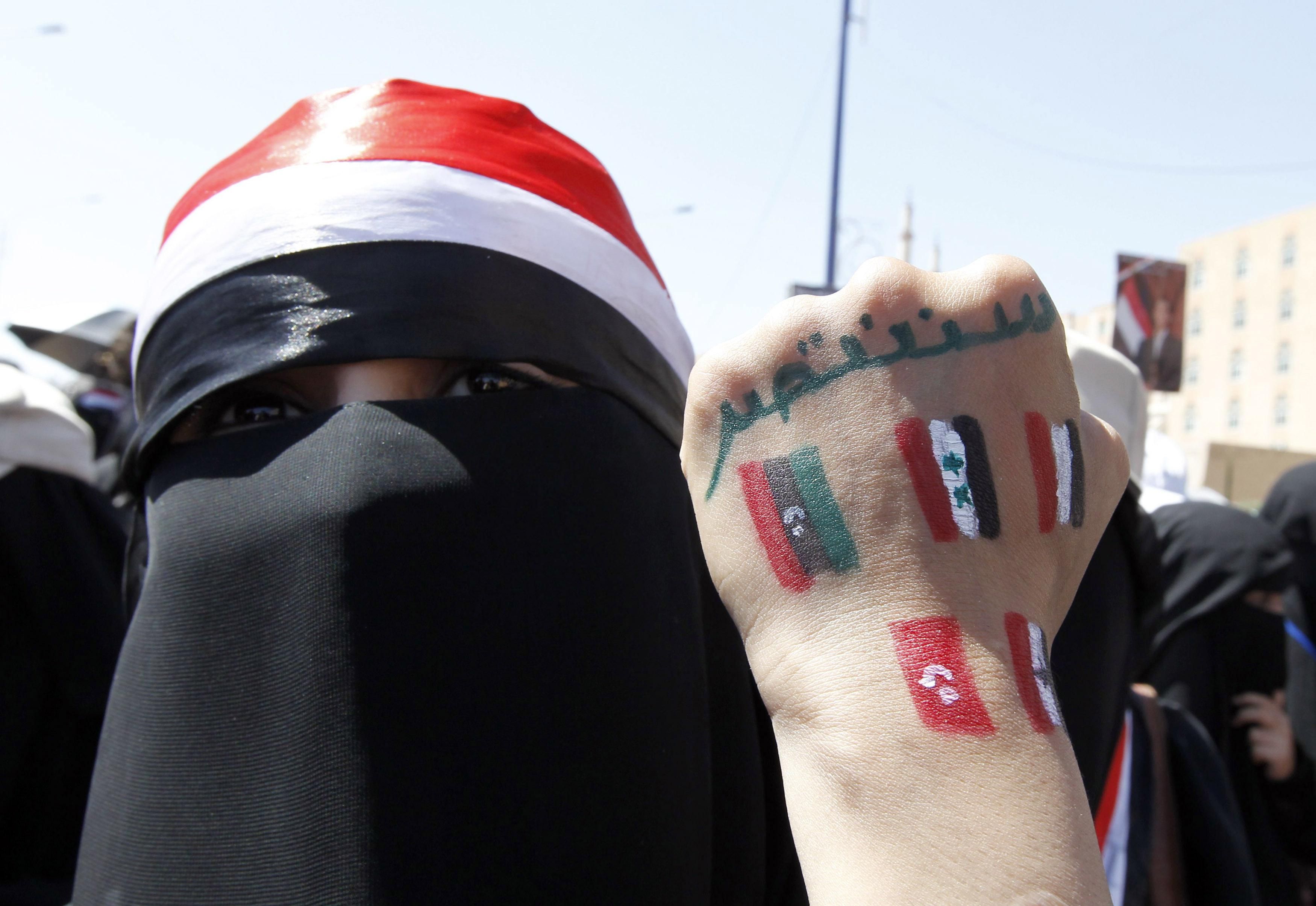At the age of 10, Mohamed Bouazizi became the primary breadwinner for his family, and at age 26 he was earning his money by selling fruit and vegetables off a cart in the Tunisian town of Sidi Bouzid.
On December 17, 2010, local police confiscated his produce for the umpteenth time, but this time they also beat and humiliated him. Bouazizi walked to the town hall to try to get his vegetables back, but no one there would talk to him. He then walked outside, doused himself in gasoline, and lit himself on fire.
Satellite television and social media began beaming his story across the Middle East. By the time he died on January 4, 2011, protesters who understood the hopelessness and desperation that drove Bouazizi to suicide had filled Tunisian streets demanding change. Ten days later, strongman President Zine al-Abidine Ben Ali, in power for 23 years, was forced to resign. The protests spread to Egypt and then across the region.
Decades of dictatorship in the Middle East had left the ground dangerously dry, but it was Mohamed Bouazizi who lit the match that ignited an uprising. We're about to mark the 10-year anniversary of the birth of the Arab Spring protests. What is their legacy?
For the most part, hopes that "people power" revolutions would yield a democratic awakening have been dashed. Only Tunisia, Bouazizi's home, has built a democracy. Demonstrations in Egypt toppled dictator Hosni Mubarak, and elections were held, but Egypt's military toppled the elected president after one year in office and restored its control of Egypt's politics.
Syria, Libya, and Yemen were plunged into civil war. Half the people who lived in Syria ten years ago have been killed or driven from their homes, and the resulting refugee crisis upended politics in Europe.
Many of the Arab Spring demonstrators demanded an end to endemic corruption, freedom of expression, and better opportunities for young men and women like Bouazizi. Sadly, the best available evidence shows that, a decade later, there are just as many crooks in power, more unemployed young people, and more journalists in jail.
Perhaps the grimmest news of all is that the tools and technologies that drew attention to Bouazizi's tragedy and boosted hopes for change have contributed to the ensuing destruction.
From Egypt's Tahrir Square, Facebook and other social media platforms helped protesters spread their message, organize demonstrations, and capture the world's attention. Unfortunately, Islamic State militants were soon using these same tools to recruit terrorists to Syria and Iraq, and to coordinate attacks in Europe and beyond.
Syria's Bashar al-Assad, with help from Russian engineers, has also used social media to disseminate disinformation and propaganda to tens of millions of people. The use of bots that didn't exist ten years ago has added to the scale of the problem.
For all these reasons, the Arab Spring has (for now) given way to Arab Winter. The best thing we can say about this story is that it's far from over. This region has been held together for centuries by strongmen backed by outside powers — Ottoman, European, American. With little history of broadly shared power, lasting progress toward individual freedom, if it comes, will take many more decades.
Mohamed Bouazizi's home country, Tunisia, now has a government that, however imperfectly, must answer to voters. For now, that's the most we can say for his legacy.More For You
Singapore was one of globalization’s biggest beneficiaries. Ian Bremmer looks at whether the city-state can survive in a world where the economic order that drove Singapore's rapid rise starts to unravel.
Most Popular
Think you know what's going on around the world? Here's your chance to prove it.
Xi Jinping has spent three years gutting his own military leadership. Five of the seven members of the Central Military Commission – China's supreme military authority – have been purged since 2023, all of whom were handpicked by Xi himself back in 2022.
